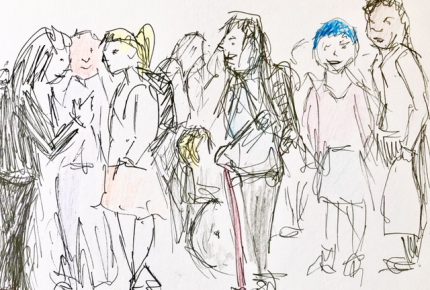Equality, Legal and Advocacy
Information Guides
Independent Advocacy
Hate Crime
Equality, Legal and Advocacy:Frequently Asked Questions
Through our helpline we receive enquiries spanning a wide range of different topics. Here is a selection of those most asked:
Council Help for Disabled People
Scottish councils have responsibilities to help disabled people and their carers who qualify for help. These include:
- Financial help
- Care needs assessments for disabled people
- Providing support for carers
- Blue Badges
- Safeguarding people who are at risk of harm
Financial help
Councils are responsible for providing financial help, including
- Housing benefit – help with rent for people over State Pension age and for some younger people in special circumstances Claim Housing Benefit – mygov.scot
- Means-tested and non means-tested help with council tax costs Working out your council tax – mygov.scot
- Lump sum payments from the Scottish Welfare Fund; Crisis Grants (usually food, energy, or heating) or Community Care Grants to help people stay in, or settle into the community. https://www.mygov.scot/scottish-welfare-fund
Social work departments have powers to help with “Section 12” payments, for adults or children in an emergency if this would save the council costs in future. They can also make payments to promote the welfare of children in need.
Councils must also have a Housing “scheme of assistance” that may give information, advice, grants, loans, and practical assistance to homeowners or, to private tenants who need disability adaptations. https://scotland.shelter.org.uk/professional_resources/legal/housing_conditions/scheme_of_assistance
Most council areas will have a Care and Repair service that will provide advice and help to older people and (in some areas) disabled people who are homeowners or private tenants. Find your local service here Office Locations | Care and Repair Scotland
Care needs assessments for disabled people
If you are disabled, your council’s social work department (or in Highland, NHS Highland) can assess your care needs, and agree a care plan to support you. The help you receive may include equipment, adaptations to your home, care at home, day care or a care home. Any help you receive that is classed as “personal care” is free.
You should be offered a choice in how your care is provided; this is called Self-directed support. Your options within your budget form the council are:
- 1 – a direct payment to you or someone else (such as a care agency) to pay for your own support
- 2 – you arrange the support
- 3 – the local council arranges the support
- 4 – a mix of the above
Support for carers
The Carers (Scotland) Act gives carers a right to support from their local council. A carer is anyone who is not paid for their caring and looks after a friend, family member or neighbour who is disabled. You do not have to be caring for a specific number of hours to be a carer.
Your local Carers Centre can explain what help is available locally. Any help a carer received from their local council is free. Find your local Carers Centre here https://www.careinfoscotland.scot/topics/support-for-carers/carer-centres/ and find out more about carers rights here https://www.careinfoscotland.scot/topics/support-for-carers/
Blue Badges
A Blue Badges provides parking concessions for on-street parking, some car parks, and disabled parking bays, allowing badge holders to park close to where they need to go
A Blue Badge belongs to a person, not a vehicle, so they can travel as a driver or a passenger. Find out more about Blue Badges here: https://www.mygov.scot/apply-blue-badge/eligibility
Protecting people who are at risk of harm
Councils have powers under the Adult Support and Protection (Scotland) Act 2007 to protect adults who cannot look after their own safety and security and are at risk of harm because of disability, mental disorder, illness, physical or mental infirmity, sexual harm or institutional harm.
“Harm” means injury or damage and includes self-harm, neglect and abuse.
Councils and other public services (such as Police) will work together to support people. You can find out more here https://www.gov.scot/policies/social-care/adult-support-and-protection/
If you are worried that someone at risk of harm, you can find your local social work department here
Contact your council
You can find details of your council and its services here Organisations – mygov.scot
Can I get a reduction of Vehicle Excise Duty?
If you are disabled you may be entitled to a reduction or exemption of vehicle tax. The vehicle must be registered in your name or a specific driver’s name and must only be used for your personal needs.
You can apply for exemption if you get the:
- higher rate mobility component of Disability Living Allowance (DLA)
- Enhanced rate mobility component of Personal Independence Payment (PIP)
- enhanced rate mobility component of Adult Disability Payment – mygov.scot
- War Pensioner’s Mobility Supplement
- Armed Forces Independence Payment
You can get a 50% reduction in vehicle tax if you get the Personal Independence Payment or Adult Disability Payment standard rate mobility component Adult Disability Payment – mygov.scot
You can find out more here Vehicles exempt from vehicle tax – GOV.UK (www.gov.uk)
What help is there with energy costs?
Energy costs used to be a worry in winter but now bills can be a challenge all year round.
The good news is there are different grants and schemes available to help people improve the heating in their homes and keep heating costs down.
Home Energy Scotland is a free energy advice service funded by the Scottish Government to help people save money and keep their homes warmer. They offer simple energy saving tips, and know about funding schemes and how to access them.
Their website Home Energy Scotland offers help with finding funding, reducing your bills, making your home warmer and living a greener life. You can call them on 0808 808 2282
How can I get a RADAR key?
The National Key Scheme (NKS), often referred to as RADAR keys, offers disabled people independent access to locked public accessible toilets around the country. You can buy from Disability Rights UK either over the phone or through their website.
You can also purchase RADAR keys through some chemists and online.
For further information see our Accessible Toilets information guide or the Disability Rights UK website.
Call the Disability Information Scotland helpline on: 0300 323 9961
How can I get a disabled parking space outside my house?
If you need a disabled parking space outside your house, contact your council. They will assess your circumstances and may charge for this.
To qualify, you must
- have a current blue badge
- either be the driver of the vehicle or be assisted by a carer who is the driver if they live where the space is needed
- keep the vehicle at the address you give on the application form
- normally have difficulty getting a perking space on the public road.
A disabled parking space can be used by anyone with a blue badge, not just the person who applied for it.
For further information or help searching for your local council’s contact number then please contact our helpline on 0300 323 9961.
For more information on getting a blue badge, check out our Blue Badges Information Guide.
How can I get care or disability equipment at home?
If you need care, support or equipment at home, the first step is to contact your local council’s Social Work Department (or in Highland, NHS Highland) and ask for a Care needs assessment. You might qualify for an adaptation, equipment, care at home, or a budget you can use to arrange your own care. If you have a carer, they have a separate right to support from the council too. If the help you need counts as “free personal or nursing care” it will be free.
Equality, Legal and Advocacy:Search for Local Organisations
Our quick search tool can connect you to over 3000 service providers, suppliers and organisations supporting people across Scotland. To find support near you, simply enter your search term and select your local authority.
| Organisation | Description |
|---|---|
| 25% ME Group | Aims: To offer support and advocacy services to severely affected M.E. sufferers and their carers. Services provided: Advocacy via telephone, or face-to-face (locally) only Helpline for members and their carers offering emotional support Newsletters tw… |
| 27000 | We are open 8 till 8pm all week and weekends however if you need us please email and we will be happy to help. ‘A venue for hire in the heart of Hamilton’ Our venue is available for the whole community and we aim to keep the costs down. A Space… |
| A2i Transcription Services | Description of service: A2i is an experienced transcription company who transcribe print documents into Braille, Audio, Large Print, e-text, Accessible PDF, Easy Read and BSL video. We also produce tactile diagrams, graphs, and maps and translate docum… |
| AAT (GB) Ltd | Description of service and products sold: Provide solutions for climbing stairs using powered stair climbers and stair climbing equipment, as well as evacuation and help with disabled access issue. They can also provide information on the Disability Di… |
| Abbotsford Care Homes | Aims: To provide nursing and residential care for those unable to stay at home. Services provided: There are seven nursing homes and two residential homes within the Fife area. Each home provides physical care and services for people with dementia or l… |
| ABC Hearing | Services provided: Providing hearing consultations to people with hearing problems and the supply suitable hearing aids to those that need them. These service can be carried out at ABC premises, or at the client’s own home throughout Edinburgh, the Bor… |
| Aberdeen Action on Disability Ltd | Promote the integration of all disabled people into the community |
| Aberdeen Airport Disabled Access Guide | Access guide detailing facilities for disabled people at Aberdeen Airport |
| Aberdeen Citizens Advice Bureau | Provide information to people living in the local area |
| Aberdeen City Council RADAR key provision | Local Authority providing RADAR keys |



